Human Library Brings Stories to Life
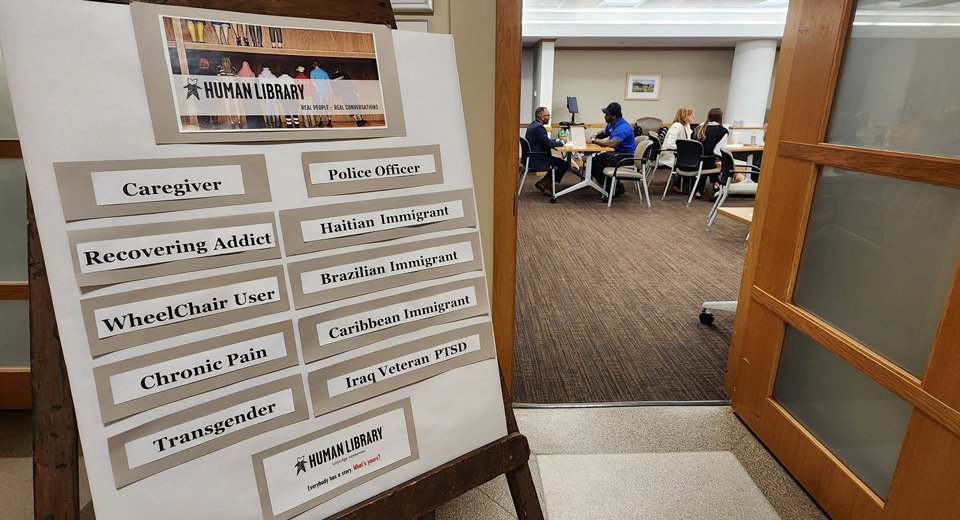
Turning the page: Cape Cod Healthcare partners with the Osterville Village Library to bring the Human Library program to staff at Cape Cod Hospital and Falmouth Hospital.
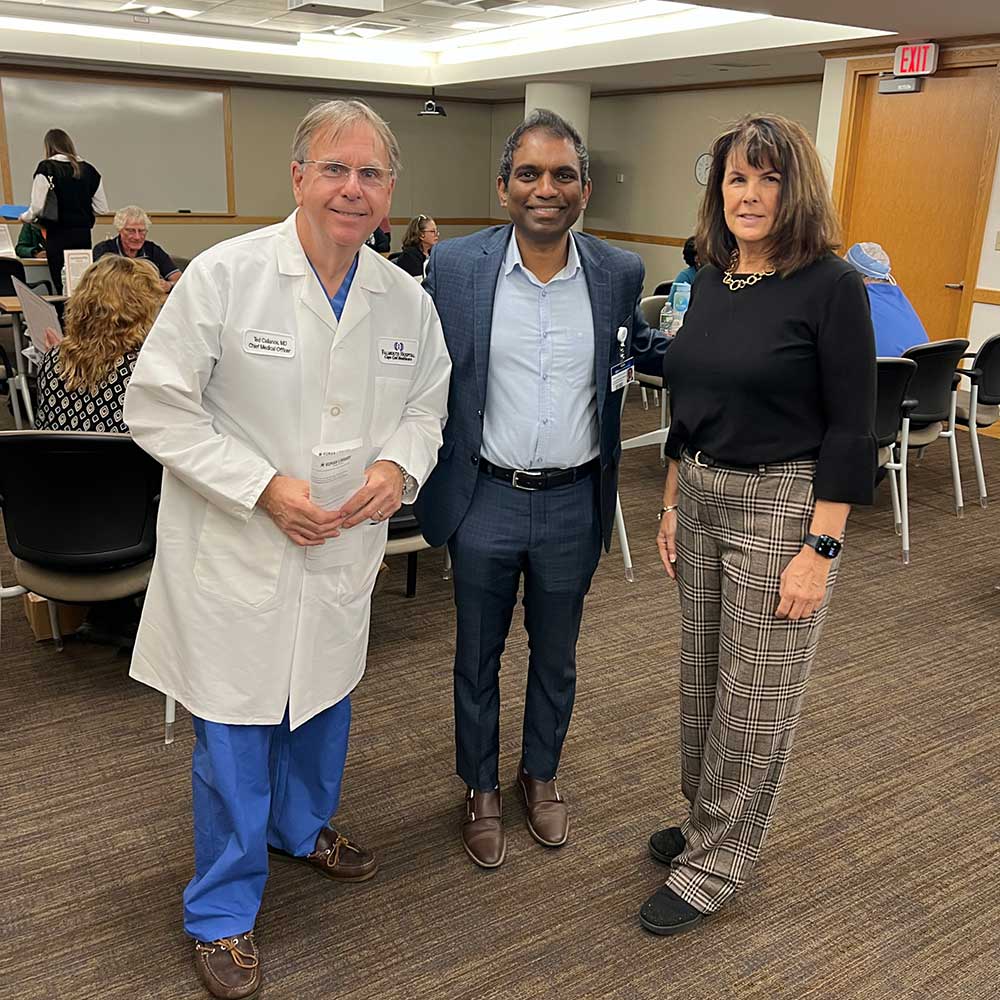
Ted Calianos, MD, explores the Human Library at Falmouth Hospital, organized by Kumara Sidhartha, MD, MPH, and Cyndy Cotton, executive director of the Osterville Village Library. (View slideshow of photos by clicking on arrow at right or swipe left on mobile).
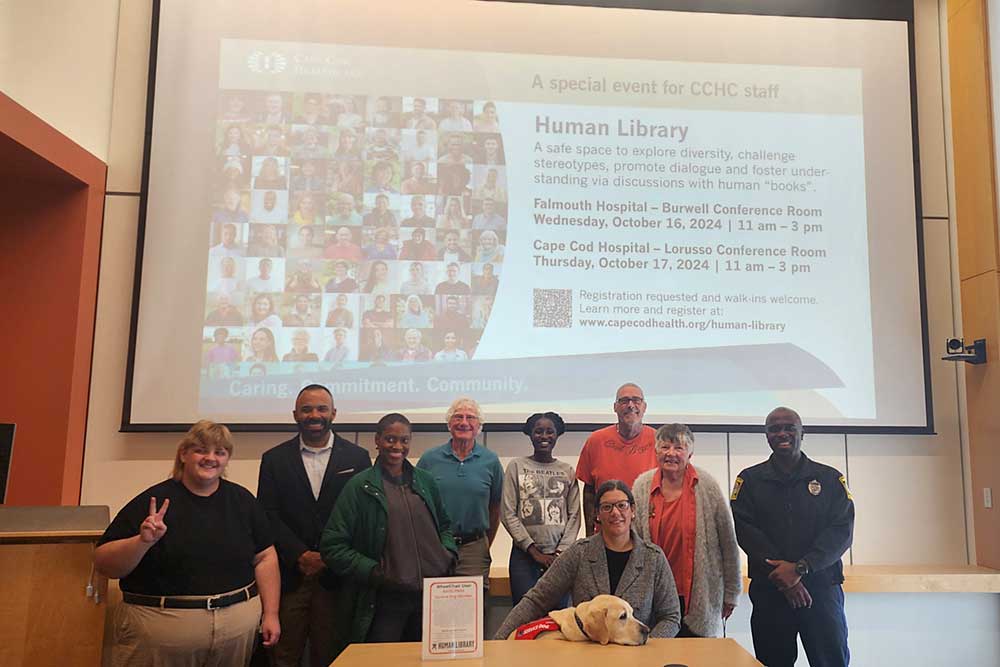
From left to right: Transgender Beans; Brazilian immigrant Mike; Caribbean immigrant Zavia; Iraq War veteran Richard; Haitian immigrant Shelma; tattooed person Leif; caregiver Marilyn; police officer Andrew; and wheelchair user Katelynne (in her front), with her service dog, Jones, participated in the Human Library on October 17 at Cape Cod Hospital.
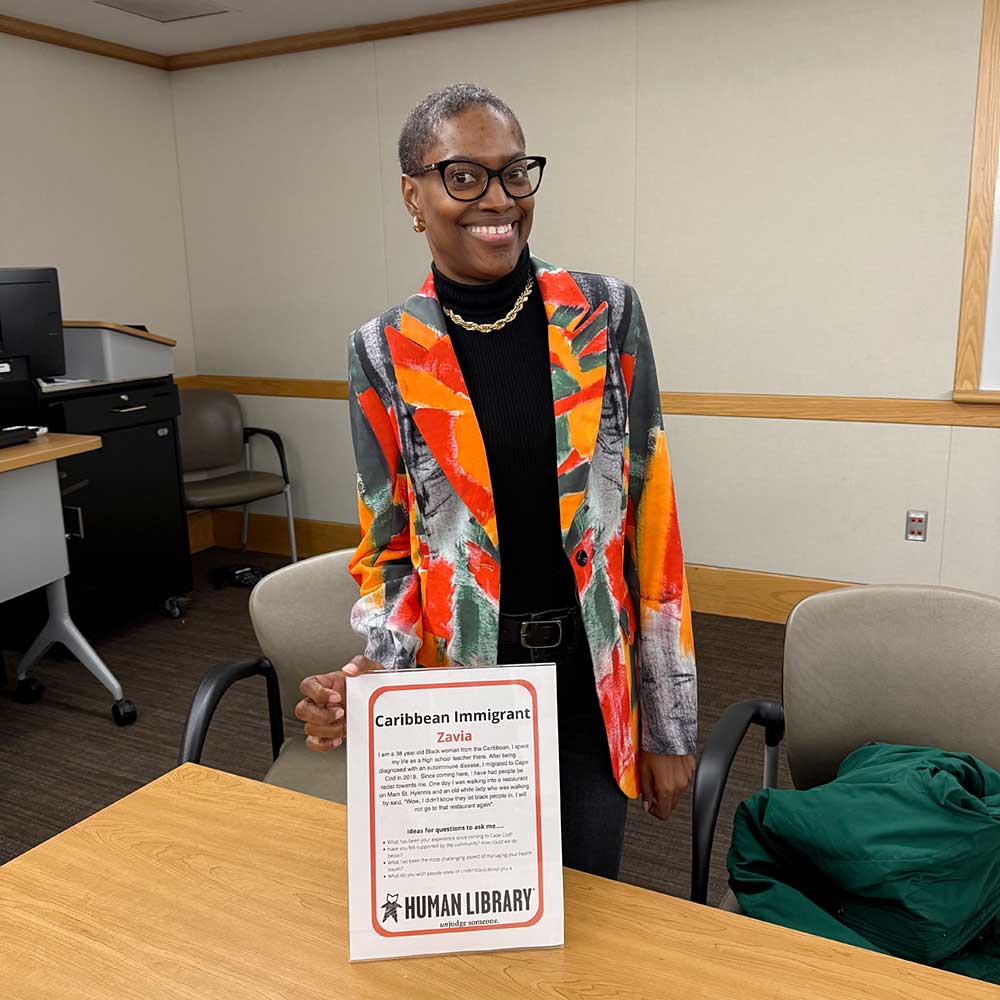
“I really appreciate this forum,” says Zavia, one of the ‘books’ at the Human Library at Falmouth Hospital and Cape Cod Hospital. “We need to keep the conversation going.”
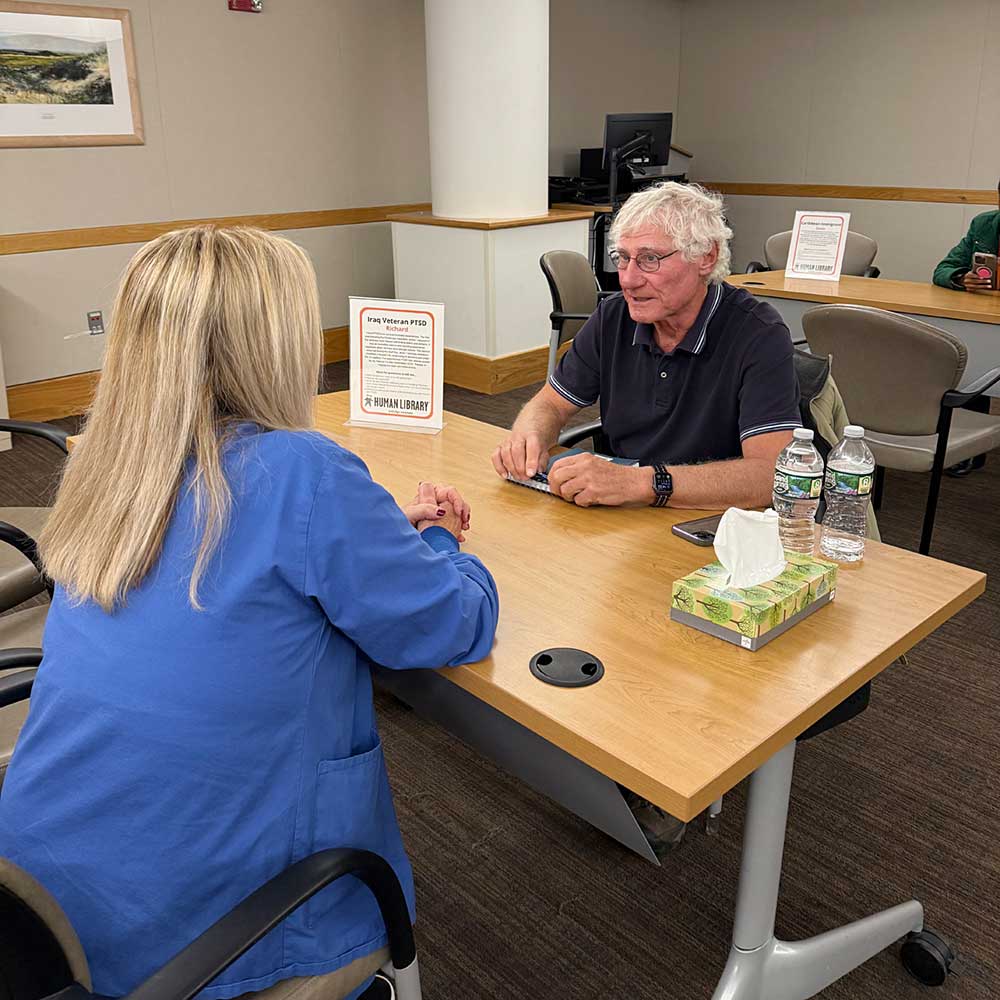
Iraq War veteran Richard shares his story about dealing with PTSD and how therapy helped him cope with traumatic experiences at the Human Library in Falmouth.
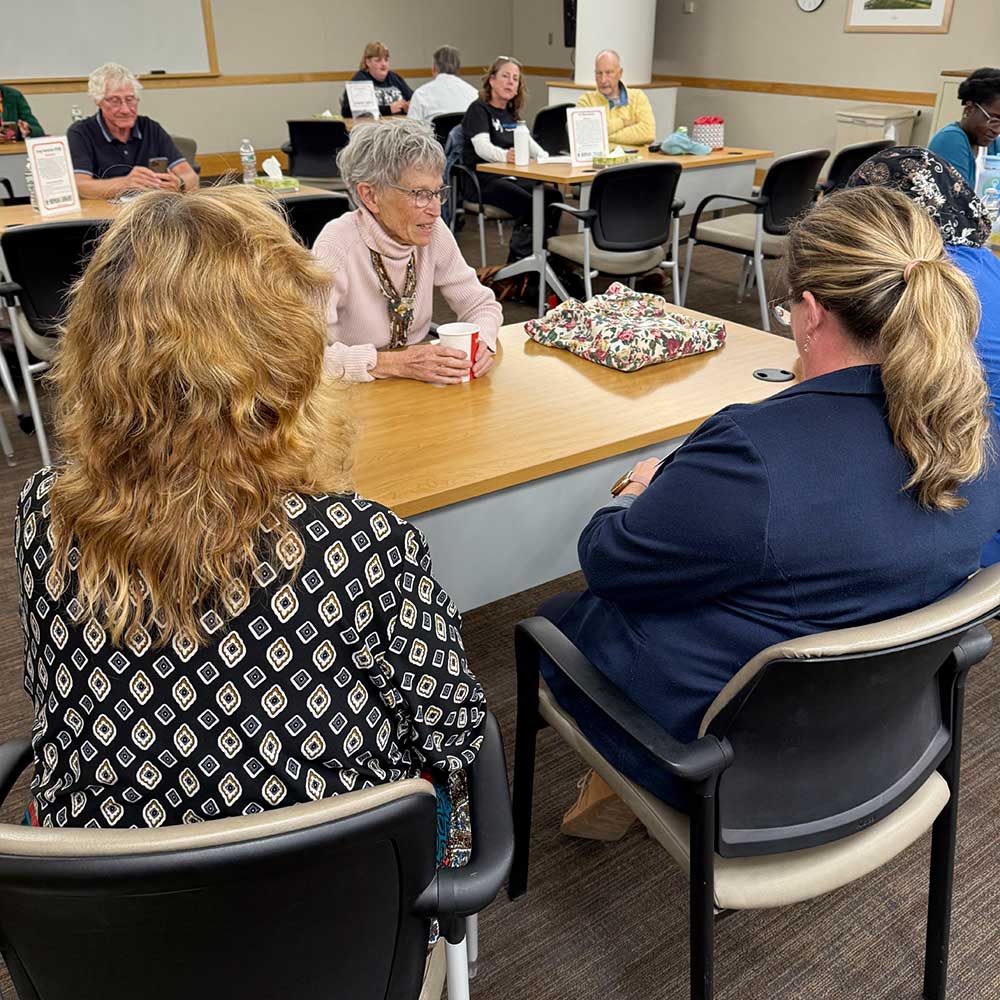
Caregiver Sue speaks with visitors about the obstacles she faces while caring for her husband, who has Alzheimer’s.
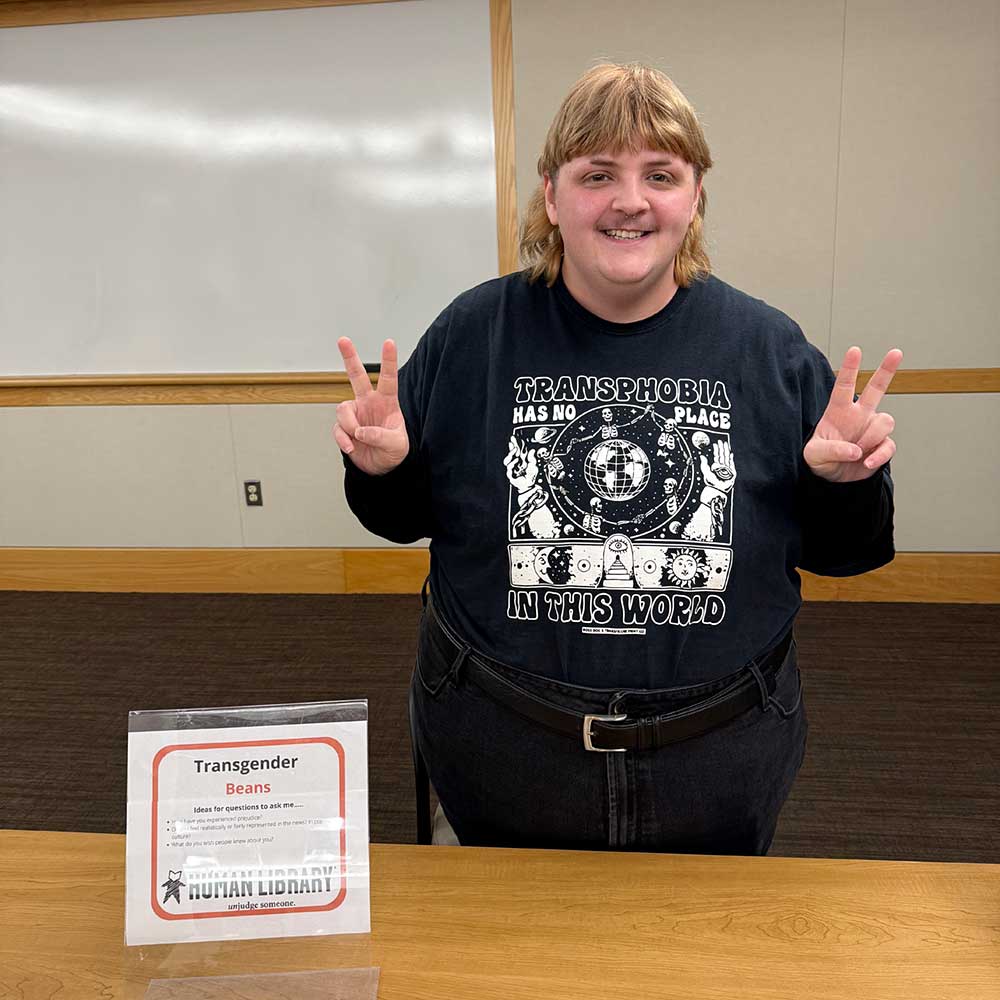
“I hope one thing people take away from my story is that it’s OK to explore different topics,” says transgender Beans. “Whether you know about trans people or not, have a conversation with someone about it. I think it’s so beautiful to connect with one another.”
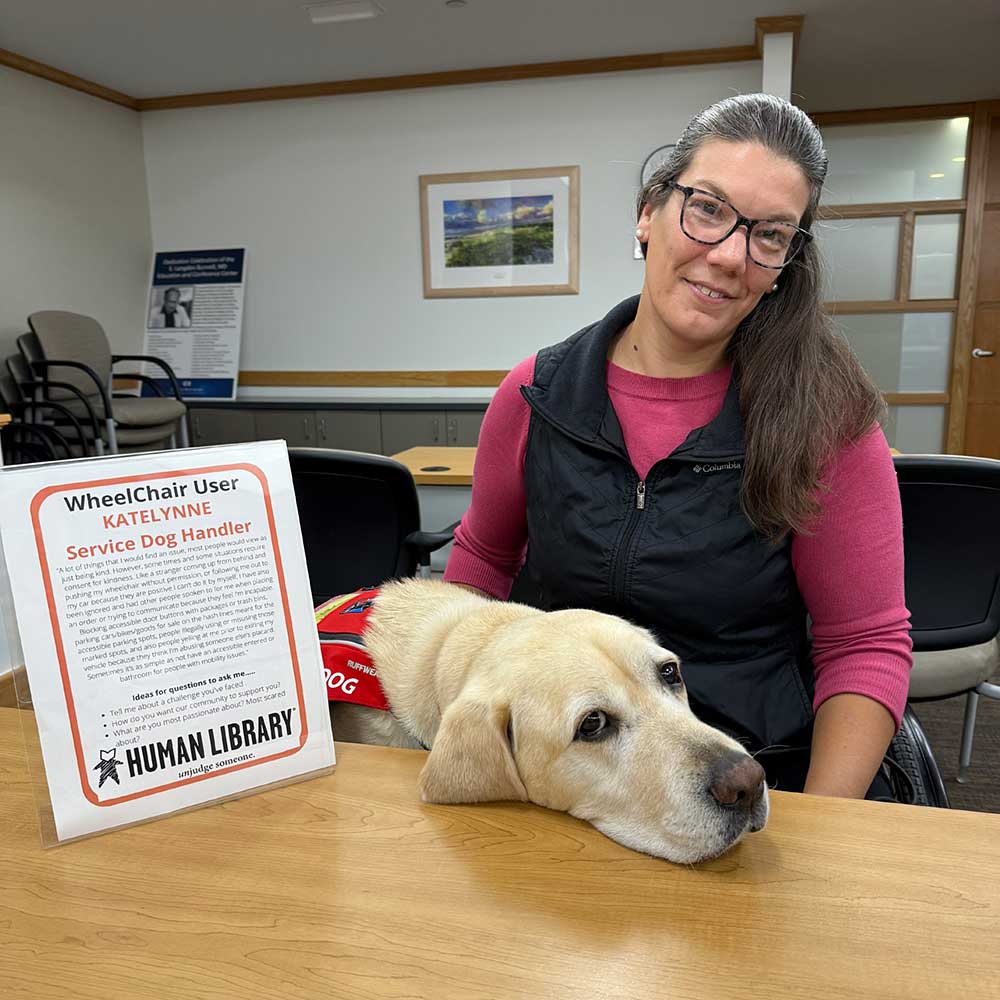
Wheelchair user Katelynne, with her service dog, Jones, says she would like the community to support her by keeping accessibility in mind in little ways, such as avoiding putting trash cans on sidewalks and making sure elevator buttons are easy to access. “It's the little things,” says Katelynne, “but they make a huge difference.”
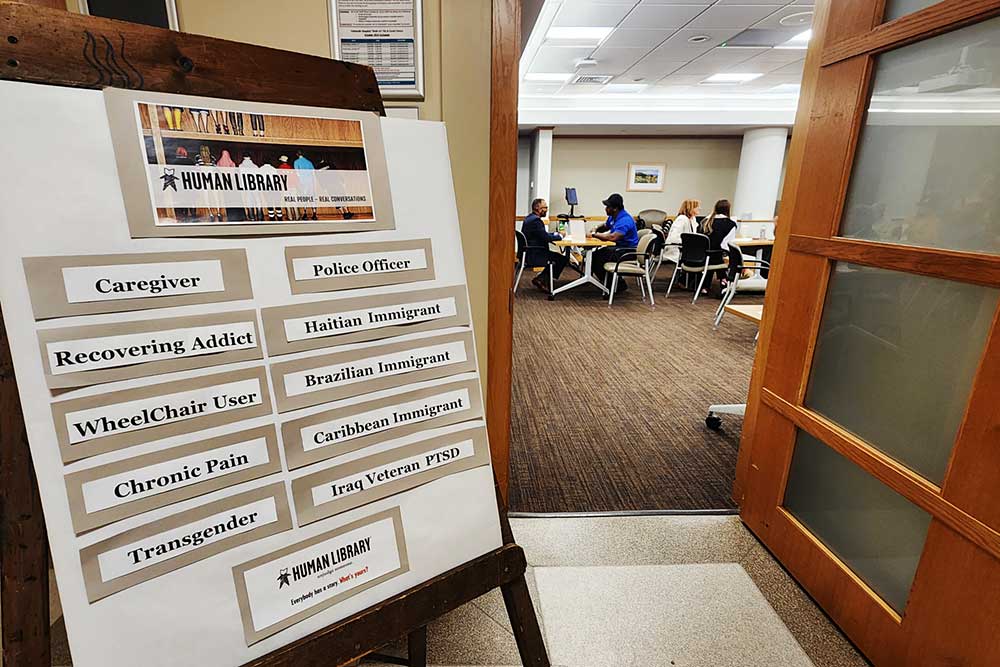
Volunteers from different backgrounds and all walks of life shared their stories at the Human Library at Falmouth Hospital on October 16.
For two days in October, Cape Cod Healthcare started a new, eye-opening chapter by partnering with the Osterville Village Library to bring the Human Library program to staff, where they were invited to “read” human books at Cape Cod Hospital and Falmouth Hospital. The informative events on October 16 and 17, which took six months to plan and organize, provided an opportunity to have one-on-one or small group conversations with a volunteer for 15 to 20 minutes. A sampling of the human books included a recovering addict, a wheelchair user, a police officer and a Caribbean immigrant.
Cape Cod Healthcare’s chief health equity and wellness officer, Kumara Sidhartha, MD, MPH, believes facilitating interactions between community members and healthcare team members can break down barriers and incubate nonjudgment.
“This has the potential to enhance the experience of future clinical interaction between patients and care team members,” says Dr. Sidhartha. “The patient may be less judgmental of a nurse who has tattoos or a physician who speaks with a different accent. Similarly, during the next clinical encounter, the healthcare team member may pause and reflect on any judgments about a patient who may be recovering from substance use or has chronic pain or requires interpreter services.”
Founded in Denmark in 2000, the Human Library’s mission is to provide a safe and welcoming space for sharing personal stories to help promote a better understanding across cultural, religious, social and ethnic differences.
The power of the spoken word
We stopped by the Burwell Conference Room at Falmouth Hospital and opened chapters (or dialogue) with transgender “Beans”; wheelchair user Katelynne; Iraq War veteran Richard; Caribbean immigrant Zavia; and caregiver Sue. The volunteers who shared their stories came from all walks of life—those who have been stereotyped or experienced prejudice in the community based on race, religion, sexual orientation, class gender identity, lifestyle choices, disability or other differences.
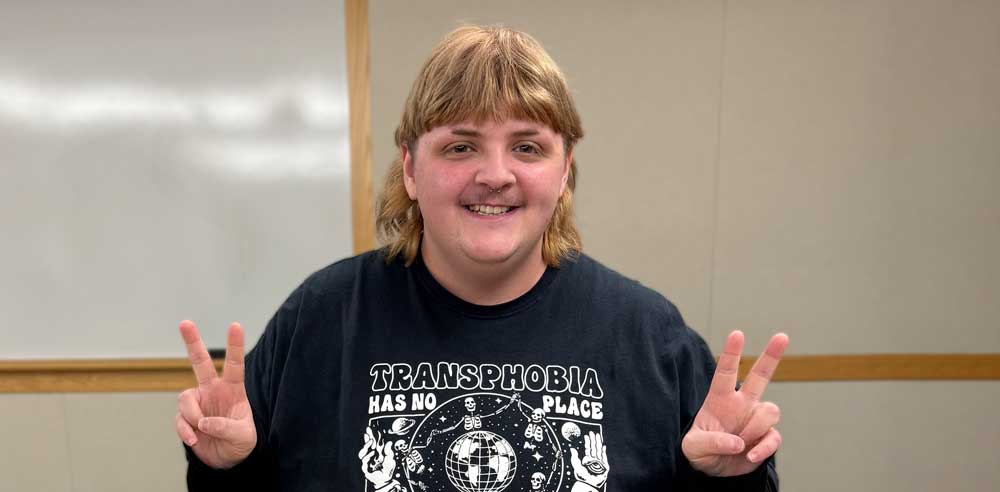 Transgender “Beans”
Transgender “Beans”
Transgender “Beans,” who identifies as he/they, has faced many different forms of harassment. After Beans’s provider recommended they participate in the human library, he was looking forward to sharing his story. “I’d rather share a little bit about myself, and not necessarily change somebody’s mind, but have them see something from a different perspective. We can’t progress unless we connect with others. And this is a way to connect with one another.”
Wheelchair user Katelynne, who is also a service dog handler, shares that certain situations require consent for kindness: For instance, a stranger coming up from behind and pushing her wheelchair without permission or following her out to her car because they think she can’t do it herself. “It draws a line when people start pushing your wheelchair without asking,” says Katelynne. She also says paying attention to the little things makes a huge difference: Blocking the sidewalk with trash cans, an inaccessible entrance to the bathroom for people with mobility issues and inaccessible elevator buttons at your place of work seem like small things, but create an inequitable playing field.
Iraq War veteran Richard, who has suffered from PTSD after several traumatic experiences, wants people to know that if he is hurt physically, people can see it. But people can’t see what’s going on inside. “That’s the hard part,” says Richard. “At first, I didn’t know what PTSD was. I’ve been independent my whole life. When you have a security clearance, you don’t have mental healthcare. If people find out you have a mental health issue, you can lose your job or lose your clearance.” Through therapy, Richard learned to get past his anger and learned to love himself again. His next chapter will involve helping others going through similar experiences.
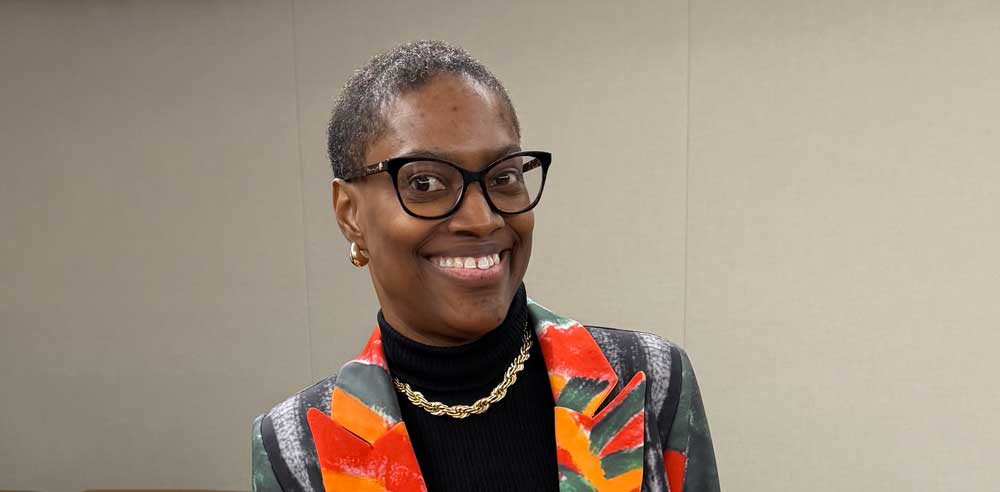 Caribbean immigrant Zavia
Caribbean immigrant Zavia
Caribbean immigrant Zavia, who started her own fashion and lifestyle brand, has faced systemic challenges. Zavia believes we are so much stronger when we work together. “I really love this human library initiative, and I hope you keep doing it. I really appreciate this forum. We need to keep the conversation going.”
Caregiver Sue, who takes care of her husband, who has Alzheimer’s, relies on the community and support groups to help her get through difficult times. “You can get run down very fast,” says Sue. When asked what she would like people to take away from her story, she replied: “To have more compassion and patience for people who have dementia and Alzheimer’s.”
Making a difference, one chapter at a time
After attending last week’s human library events at Cape Cod Hospital and Falmouth Hospital, Dr. Sidhartha says post-event surveys from CCHC team members revealed positive comments such as, “please do this again”; excellent”; I learned a lot”; “definitely helps with and can apply/incorporate into my job”; and “very informative.” Attendees also commented on the impact of “the positive attitude of the human ‘books’ and their coping skills.”
This event is another example of how Cape Cod Healthcare is partnering with community entities, in this case Osterville Village Library, to advance a culture of intentional inclusivity and equitable healthcare. The events held at both hospitals are part of the ongoing learning opportunities offered to staff members in subject areas that impact health equity of the community we serve.
“As time goes on, it will grow,” says Cyndy Cotton, executive director of Osterville Village Library. “You see the difference a conversation makes.” Cotton says when you talk to someone who has experienced challenging and uncomfortable situations, it’s different when you can see it in their face and expressions. “Hopefully, each conversation will help foster a better understanding.”
